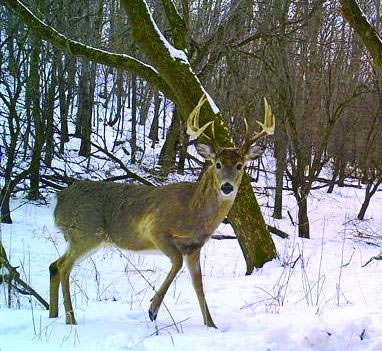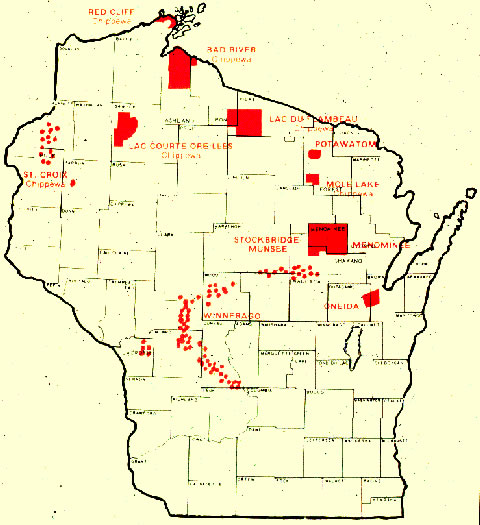 |
Canku Ota
|
 |
|
(Many Paths)
|
||
|
An Online Newsletter
Celebrating Native America
|
||
|
February 2015 - Volume
13 Number 2
|
||
|
|
||
|
Tribes Hope For Restoration
Of Night Deer Hunting Tradition
|
||
|
by Chris Malina Wisconsin
Public Radio
|
||
 According
to Wisconsin's Ojibwe tribes, the state's ban on hunting deer at night
is something that needs to change — and depending on what the
U.S. Supreme Court has to say, they could soon get their wish. According
to Wisconsin's Ojibwe tribes, the state's ban on hunting deer at night
is something that needs to change — and depending on what the
U.S. Supreme Court has to say, they could soon get their wish.
A federal appeals court ruling last year found that the state couldn't prevent the tribes from hunting deer at night. On Wednesday, the state asked the Supreme Court to review that decision. According to a spokesperson for one of the tribes involved in the case, it's a serious issue for the Ojibwe. "Deer hunting is an incredibly important aspect of traditional Indian culture and heritage, and it's something the tribes really need to sustain their populations," said Brandon Thoms, director of public relations for the Lac du Flambeau Band of Lake Superior Chippewa. Part of that tradition has included hunting at night, which Thoms said tribal members had been doing for generations until it was made illegal in 1991. Previously, the tribes were protected by land cession treaties they had signed with the U.S. government in the 1800s, which included provisions guaranteeing the right to fish and hunt. However, challenges to those treaty rights were brought to court in the 1980s and 1990s. While many of the rights were upheld, U.S. District Judge Barbara Crabb banned off-reservation night deer hunting due to safety concerns. Since then, Thoms said the state has let certain individuals and groups hunt at night once Chronic Wasting Disease began to spread through the state's deer population. "There were no accidents," he said. "Nobody got killed, nobody got injured." Those hunting allowances led the tribes to appeal Crabb's decision. In October 2014, the U.S. 7th Circuit Court of Appeals in Chicago, led by Judge Richard Posner, ruled in favor of the tribes. "Posner basically said that the state has to look at working with the tribes to develop a deer season, or some sort of regulations for them to be allowed to hunt deer at night," Thoms said. "It was demonstrated by state-authorized agencies and individuals that hunting could be done safely at night." Thoms said the tribes have proposed a rigorous safety plan to alleviate concerns, including skill and marksmanship tests, as well as a thorough inspection of hunting land before any shots are fired. But most of all, Thoms stressed that the tribes know what they're doing when it comes to night hunting, maybe better than anyone. "When we're speaking from a certain position on this topic, we're speaking in a position of expertise," he said. "The tribes have been hunting deer at night for generations. It's not something we're just making up, or we've just grasped onto in the last 10 years. It's something that families grow up with." If the Supreme Court declines to review the state's request, the case will be sent back to Judge Crabb, who made the original ruling to ban nocturnal hunting in 1991. |
 Map of Wisconsin Tribes |
|
|
||
|
|
||
| Canku Ota is a free Newsletter celebrating Native America, its traditions and accomplishments . We do not provide subscriber or visitor names to anyone. Some articles presented in Canku Ota may contain copyright material. We have received appropriate permissions for republishing any articles. Material appearing here is distributed without profit or monetary gain to those who have expressed an interest. This is in accordance with Title 17 U.S.C. Section 107. | ||
|
Canku Ota is a copyright ©
2000 - 2014 of Vicki Williams Barry and Paul Barry.
|
||
 |
 |
|
|
The "Canku
Ota - A Newsletter Celebrating Native America" web site and
its design is the
|
||
|
Copyright ©
1999 - 2014 of Paul C. Barry.
|
||
|
All Rights Reserved.
|
||